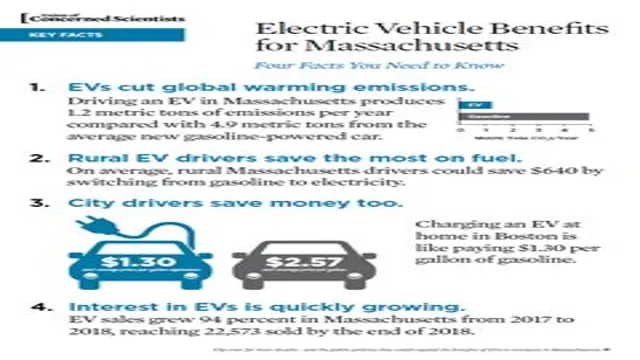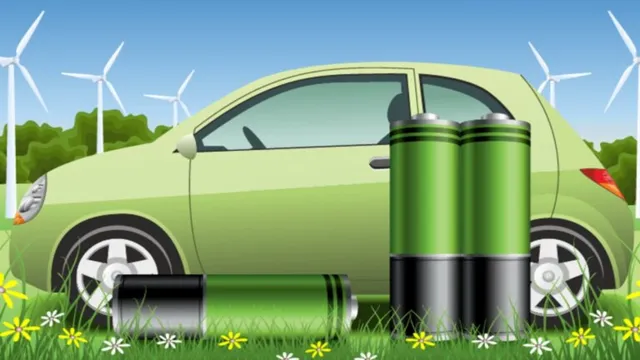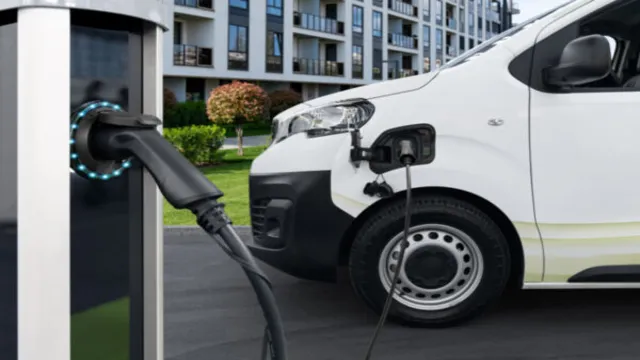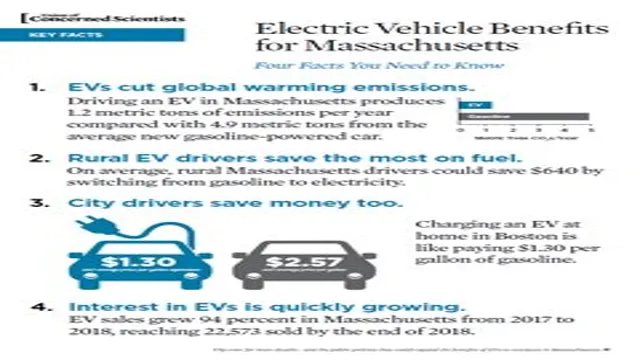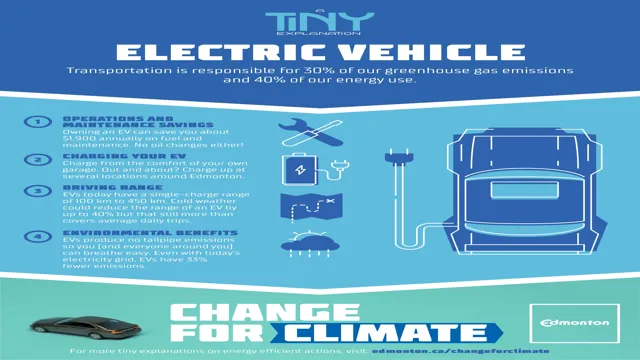Driving the Future: Exploring the Environmental Benefits of Electric Cars
Electric cars have been making a lot of noise lately, and for good reason – they’re making waves in the automotive industry due to rising concerns about the environment. With the growing urgency to reduce greenhouse gas emissions and combat climate change, more and more people are turning to electric vehicles as a sustainable alternative to traditional gas-powered cars. In fact, electric cars have proven to be incredibly beneficial in reducing harmful emissions, making a significant contribution to our efforts to preserve the planet we call home.
In this blog post, we’ll explore the various ways in which electric cars benefit the environment, ranging from reduced air pollution to lessens on our carbon footprint. Read on to find out how electric cars are making a difference in the fight against climate change.
Reducing Greenhouse Gas Emissions
Electric cars are a great way to help reduce greenhouse gas emissions and benefit the environment. Traditional gasoline-powered cars emit harmful pollutants that contribute significantly to air pollution. These emissions can cause severe respiratory health issues, smog, and acid rain.
Electric cars, on the other hand, produce zero emissions, reducing the carbon footprint and contributing to cleaner air for individuals. Additionally, electric cars also have longer lifespans, meaning they will need fewer replacements, producing less waste compared to traditional cars. Furthermore, they have lower fuel costs as they require less heating and cooling systems, reducing expenses for owners.
Therefore, investing in electric cars can be a smart choice for both individuals and the environment, as it can help to significantly reduce air pollution and promote sustainability in the long run.
Electric Cars Produce 0 Emissions
Electric cars are a valuable tool in the fight to reduce greenhouse gas emissions and protect our environment. These vehicles emit absolutely zero pollutants during use, which can drastically reduce the amount of harmful emissions that are produced as a result of transportation. This not only includes carbon dioxide emissions, but also pollutants like particulate matter, nitrogen oxides, and hydrocarbons that can harm human health and contribute to climate change.
With advancements in technology and infrastructure, electric cars are becoming more accessible and practical, and offer a clear path towards a cleaner, greener future. By embracing electric vehicles and promoting sustainable transportation practices, we can help to mitigate the harmful effects of climate change and move towards a more sustainable future.
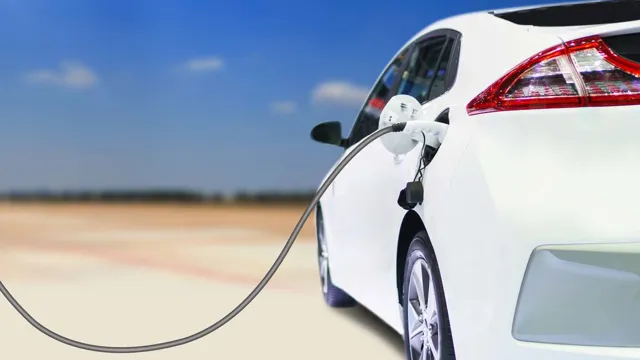
Less Dependence on Fossil Fuels
The world is starting to move away from its dependence on fossil fuels, and for good reason. Burning fossil fuels such as coal, oil, and gas releases greenhouse gases into the atmosphere, contributing to climate change. In order to reduce greenhouse gas emissions, we need to find alternative sources of energy that are sustainable and do not harm the environment.
One of the solutions is the use of renewable energy sources such as wind and solar power. These sources of energy do not emit greenhouse gases, which makes them a great alternative to traditional forms of energy. Another solution is the implementation of energy-efficient policies and practices, such as energy-efficient buildings and transportation.
By reducing our dependence on fossil fuels, we can help create a healthier, safer, and more sustainable world for ourselves and future generations. So, let’s start making the necessary changes today to reduce our carbon footprint and make a positive impact on the planet.
Improving Air Quality
Electric cars have revolutionized the way we think about transportation, and they provide enormous benefits to the environment. One of the primary advantages of electric vehicles is that they emit zero greenhouse gases, which contribute to air pollution and climate change. Even when you account for the emissions generated by power plants that produce the electricity necessary to charge them, electric cars still contribute significantly less to air pollution than their gasoline-powered counterparts.
This makes electric vehicles a crucial component of any strategy aimed at improving air quality and reducing the negative impacts of transportation on the environment. By choosing to drive an electric car, you can make a positive impact on the planet and help to protect the health and well-being of future generations, all while enjoying the many advantages of this innovative technology.
Reduction in Particulate Matter
Air pollution is a significant environmental issue that affects the health and well-being of people worldwide. Particulate matter is one of the most dangerous pollutants found in the air, and its reduction is crucial in improving air quality. Particulate matter includes tiny particles that can enter the lungs and bloodstream, leading to respiratory and cardiovascular diseases.
There are several ways to reduce particulate matter, such as controlling industrial emissions, promoting cleaner transportation, and increasing the use of renewable energy sources. Governments and environmental organizations play a critical role in raising awareness of the health risks associated with particulate matter and passing laws that limit their emissions. Small changes at an individual level, such as using public transportation, reducing energy consumption, and avoiding burning wood or trash, can also contribute to a significant reduction in particulate matter.
By working together, we can create a cleaner and healthier environment for future generations.
Reduced Noise Pollution
Reduced Noise Pollution One of the benefits of improving air quality is a reduction in noise pollution. Believe it or not, air pollution and noise pollution are linked. Vehicles and factories that emit pollutants tend to be noisy too.
As we work to reduce emissions and improve air quality, we’ll naturally reduce the noise pollution that often accompanies them. This is especially important for communities located near busy roads and highways. Studies have shown that high levels of noise pollution can lead to stress, sleep disturbances, and even heart disease.
By tackling two problems at once, we can create a healthier, more peaceful environment for everyone. So the next time you pause to take a deep breath of fresh air, remember that you’re also enjoying a quieter, more peaceful world.
Cleaner Manufacturing Process
When it comes to manufacturing, there has always been a concern about the impact on the environment, especially in terms of air quality. With increasing awareness and regulations, companies are looking for ways to improve the cleanliness of their operations. The good news is that there are many ways to achieve this.
One approach is to switch to cleaner energy sources, such as solar or wind power, to reduce harmful emissions. Another is to invest in technology that reduces pollutants from the manufacturing process itself, such as scrubbers or filters. Additionally, companies can implement better waste management systems to reduce the amount of pollutants that are released into the air.
By taking these steps, manufacturers can significantly reduce their environmental impact and contribute to a cleaner, healthier world for everyone.
Saving Water Resources
Electric cars are an eco-friendly solution to the ongoing damage to our planet. Today, as humanity faces the consequences of environmental degradation, electric cars have become a ray of hope that can help us preserve our planet’s water resources. With the increasing number of vehicles on the road powered by fossil fuels, a significant amount of fuel is consumed every day, leading to air and water pollution.
Electric cars, on the other hand, generate far less carbon emissions, making them an ideal fit for our environment. By using electric cars, we can reduce our carbon footprint and hence the pollution of our water resources. As a result, we can not only help preserve our planet’s water resources but also ensure a brighter and more sustainable future for generations to come.
Therefore, it is essential to shift towards electric cars as they are a smart and environmentally friendly solution.
Electric Cars Use Less Water for Refueling
Electric cars are a great innovation that can actually help save water resources. This is because conventional gas-powered vehicles require a significant amount of water to produce and refine the gasoline that they run on. In contrast, electric cars do not require any gasoline and therefore do not consume nearly as much water during their production process.
Additionally, electric cars can be recharged using renewable energy sources like solar or wind power, which do not require any water at all. This means that electric cars are much more sustainable and environmentally friendly than their gas-powered counterparts. So by choosing to drive an electric car, you are not only helping to reduce air pollution, but also conserve water resources for future generations.
Lower Water Pollution from Oil Spills
Lowering water pollution from oil spills is crucial for the preservation of our water resources. Oil spills have become a common occurrence in our oceans, and they cause devastating damage to marine life and the ecosystem as a whole. However, many innovative solutions are being implemented to prevent and mitigate the effects of oil spills.
One such solution is using microbes that eat oil as a natural way to clean up spills. These tiny microbes consume oil molecules, breaking them down into harmless compounds and reducing the toxic effects of oil on water and marine life. Another solution is implementing more stringent regulations on ships and offshore platforms that transport or drill for oil to ensure that they prioritize safety measures to prevent spills.
Additionally, using more environmentally-friendly alternatives to oil, such as renewable energy sources, can help minimize the frequency of oil spills. By adopting these measures, we can significantly lower water pollution from oil spills and preserve our precious water resources for generations to come.
Conclusion: Electric Cars Offer Big Benefits for the Environment
In conclusion, choosing to drive an electric car is not only a smart financial choice, but it’s also a significant step towards a cleaner, greener planet. Electric cars produce zero emissions, reduce our dependence on fossil fuels, and help create a future where we can all breathe a little easier. So, if you’re looking to zap your way into a better tomorrow, an electric car might just be the charge you need!”
FAQs
What are the environmental benefits of using electric cars?
Electric cars produce zero emissions while driving, reducing harmful pollutants and greenhouse gases. They also reduce noise pollution in cities.
Are electric cars more energy-efficient than traditional cars?
Yes, electric cars are more energy-efficient than traditional cars. Electric cars convert approximately 60% of the electrical energy from the grid to power at the wheels, while traditional gasoline cars only convert about 20% of the energy stored in gasoline to power at the wheels.
Can electric cars help reduce our dependence on foreign oil?
Yes, electric cars can help reduce our dependence on foreign oil. By relying on domestic sources of electricity, we can decrease our reliance on foreign oil imports.
Do electric cars require special charging infrastructure?
While electric cars do require charging infrastructure, they can be charged from a standard household outlet. However, installing dedicated charging infrastructure can speed up charging times and make it more convenient for electric car owners.
